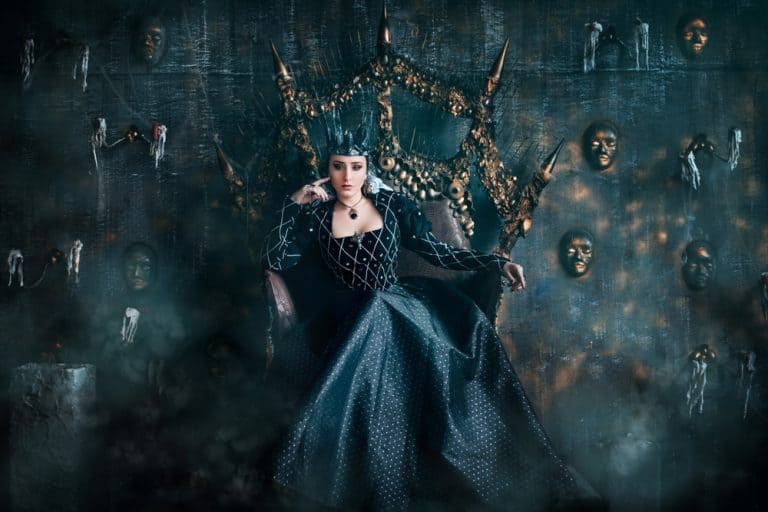If you are fortunate enough to be in a relationship with a loving and devoted ENFJ you might sometimes wonder whether they are protective to shield you from harm or severely possessive.
ENFJs express their love and care by being protective of their partners in a healthy relationship, as they always have their best interests at heart. However, unhinged ENFJs may become possessive or controlling due to their deep-seated insecurity, jealousy, and fear of losing their loved ones.
While it may seem that your ENFJ partner only has your best interests at heart, there is a thin line between being protective and possessive. So, read on if you want to understand your ENFJ partner’s true intentions!
ENTJ Personalities: A Brief Overview
The Myers-Briggs personality assessment methodology was devised by Katherine Briggs and Isabel Myers in 1920 and is based on Carl Jung’s work which resulted in 16 core personalities denoted with an abbreviation of their key character traits.
According to leading psychologists, only 2-5% of the global population are classified as ENTJs, so it’s a rare personality trait.
The ENFJ acronym denotes someone who thrives in social settings (Extraverted), is more preoccupied with concepts than hard facts (iNtuitive), bases their choices on their emotions (Feeling), is a meticulous planner, and is highly organized (Judging).
Idealistic ENFJs highly value their intimate relationships with others and will always strive to do what feels right for those they care for, based on their profound core value system.
ENFJs are often referred to as The Giver, Protagonist, or Teacher as they strive to value people’s feelings, thoughts, and ideas and do everything in their power to make others feel special and nurtured.
They are creative thinkers, adept at the art of giving, who can establish connections with diverse personality types in an instant due to their uncanny ability to understand what makes different people tick.
ENFJs share the following core traits:
- Exceptional interpersonal skills and leadership skills.
- Adept at coaching and problem solving
- The ability to clearly express their emotions.
- Mentors and coaches who promote self-expression.
- Highly adaptable and resourceful.
- Requires reassurance from others to feel valued.
- A profound understanding of the human condition and psychology.
ENFJs are predominantly selfless, and they possess an incredible ability to identify people’s strengths and to inspire them to achieve their goals, on a personal and a professional level, without them even noticing it.
While ENFJs are adept at manipulating people, it is counteracted, by their robust moral code, an innate desire to see others accomplish their goals.
ENFJs In Relationships: What You Should Know
ENFJs are devoted, loving partners who continuously motivate their partners to reach their full potential in every sphere of life.
They are more focused on ensuring that their partner’s needs are attended to than their own and inclined to ensure that their relationship is harmonious consistently.
While ENFJs are the most caring of all personality types, they tend to be enormously idealistic and strive for perfection, which means that they are inclined to have an unrealistic perception of what a perfect relationship entails, which is impossible to attain.
This illusion about a perfect relationship often makes a partner feel inadequate and full of self-doubt as they find it challenging to live up to ENFJs unrealistic expectations. Although they would never admit it, proud ENFJ often need to be told by their partners that they are loved and cherished.
Highly emotive and passionate ENFJs pull no punches when it comes to expressing their feelings and shouting it from the rooftops!
However, if they are disgruntled with a partner, they will make it evident that they are upset without clearly stating why and, by default, make their partners feel guilty for upsetting them.
Suppose an ENFJ realizes that their relationship is in trouble. In that case, they will make a concerted effort to fix it, sacrifice their own needs, and try to gain a deeper understanding of their partner’s point of view to make the relationship work.
However, if they realize that a relationship is over, they will take ownership of their part in the breakdown of the partnership and gracefully move on with their lives.
Why ENTJs Might Seem Possessive
ENFJs have an innate need to nurture and protect their partners and ensure they feel fulfilled in a relationship.
While truly caring about a partner’s wellbeing is an endearing quality, “Thinking” personality types might view it in a different light as being possessive or smothering.
Although there are always exceptions to the rule, well-balanced ENFJs are protective and not possessive as they know that it is a toxic and destructive behavior that will irrevocably harm their relationships.
However, like any unhealthy personality type, ENFJ would be possessive or controlling due to deep-seated insecurity, especially if they feel they might lose a partner or a friend if they spend more time with someone else.
Like other unhealthy personality types, insecure ENFJs will spiral out of control, become possessive or controlling, and harness their outstanding manipulative skills to wreak havoc and, by default, create toxic relationships.
In the grand scheme of things, a relationship with an ENTJ partner is passionate and fun, and they are devoted, loving partners who are highly committed to creating harmonious relationships.
How To Deal With Overprotective ENFJs
If you feel smothered by your attentive ENFJ partner, it is only because they deeply care about you and want to shield you from potential harm.
While an ENFJs calling is to profoundly connect with people and express their love by nurturing those they deeply care about, they need loving validation from their partners to make them feel important and secure in their relationship.
So, if you want your ENFJ partner to let go of their overprotective behavior, and mitigate any potential friction, have an open and honest yet tactful conversation with your partner and explain what constitutes a healthy relationship for you.
Assure them that you truly appreciate their love and devotion but that you need a little breathing space to thrive in the relationship.
Fortunately, ENFJ partners are selfless human beings who always have their partner’s best interests at heart, so they will most likely back off a little to build or maintain a harmonious relationship.
ENFJ Celebrities
Now that you know a little bit more about these selfless personalities, here are a few examples of ENFJ celebrities: Malala Yousafzai, Nelson Mandela, Martin Luther King, Jr, Oprah Winfrey, Abraham Maslow, Barack Obama, Joe Biden, Alfred Adler, Ralph Nader, Margaret Mead, and Pope John Paul II.
Conclusion
Well-balanced ENFJs express their care by being protective of the ones they love and shielding them from potential harm. While it might come across as being possessive, especially to “Thinking” personality types, it is merely an expression of ardent love and devotion.






